Ever since the organization VIDA released statistics in early February showing a stark gender imbalance in the world of literary reviews, there has been a sustained conversation online about what the numbers mean and how they might be changed. Writers and editors who have chimed in include Meghan O’Rourke, Katha Pollitt, and Ruth Franklin, among many others. At Bookslut, Jessa Crispin and Michael Schaub had an extended dialogue about the issue, and Drew Johnson, as many have, wondered about his role as a reader. The subtitle of Pollitt’s piece was: “If you really want more women writers, get more women editors.” I happen to know a former reviews editor at one of the magazines targeted in the VIDA study, and she got in touch to add her voice to the discussion. Jennifer Szalai edited the book reviews section of Harper’s from 2003 to 2010. Jen and I have been close friends since we served as Harper’s interns together in the fall of 2000. Our correspondence took place over e-mail:
 Let’s get your background down first. How long were you the book reviews editor at Harper’s? And during that time, what was the general nature of the job (without addressing the gender balance in these questions yet) – how many people did you solicit vs. how many people pitched you? How much of what you assigned for review was nonfiction vs. fiction?
Let’s get your background down first. How long were you the book reviews editor at Harper’s? And during that time, what was the general nature of the job (without addressing the gender balance in these questions yet) – how many people did you solicit vs. how many people pitched you? How much of what you assigned for review was nonfiction vs. fiction?
I edited the Reviews section at Harper’s for about seven years. The reviews we ran were a mix of pieces that started out as unsolicited pitches from writers and pieces by writers I solicited, some of whom were already in the Harper’s stable and others whom I sought out on my own. I would get pitched a lot, and from the considerable number of very brief, two-sentence pitches I received (“Would you like a review of X? I’d like to write about it.”), I had the feeling that many writers who had never written for the magazine felt that a review was somehow easier to write (and assign!) than the essays that ran elsewhere in the magazine. And I would have to tell these writers that our reviews, because of their length (3,500-4,000 words), had to be thought of as essays, which meant that the writer had to come up with an angle or an approach that would give me a sense of their argument, what they thought might be at stake. (Even among the writers I solicited, I would usually ask them to specify an angle or certain questions that they intended to explore before we’d agree on the assignment.)
This meant that assigning reviews of fiction was always harder than assigning reviews of nonfiction. With a nonfiction book, one has a pretty good sense of what the book is about, and often it’s mostly a matter of finding a critic who happens to have an expertise (or an intense interest) in the subject, as well as an original approach. With a work of fiction, whose ostensible “subject” makes up only part of the reading experience, I usually wanted to read an essay that revealed what happened when a particular critic encountered a particular book. This requires a lot of trust in the writer, simply because I could never be sure what I was going to get.
Jonathan Chait of The New Republic wrote: “Confidence in one’s opinions and a willingness to engage in intellectual combat are disproportionately (though not, of course, exclusively) male traits.” Katha Pollitt, after considering notions similar to the one expressed by Chait, wrote at Slate: “There is probably a bit of truth in all these points: Women do often doubt their knowledge and abilities, and their diffidence probably explains why the pool of writers sending in pitches and proposals and unsolicited manuscripts is, at most magazines, disproportionately male.” What percentage of pitches you received, roughly, were from men? And were there any general tonal differences in their approaches from the approaches of prospective women writers?
A vast majority of the pitches I received were from men. In fact, during seven years in that position, I could probably count on two hands the number of women who pitched me — I’d guess that the ratio was something like nine or 10 to one. I also noticed that if I turned down a pitch from a man, he would likely send me another pitch the following week. Whereas women rarely pitched me again after getting a rejection.
Tonally, no, I didn’t notice much of a difference between the men and women. This is not to discount Chait’s point, since the women who did send pitches might be a self-selected group — a distressingly small self-selected group — but all the prospective writers would sound pretty confident in their opinions.
The statistics approach the issue from two angles: reviews written by gender, and the books being reviewed by gender. How separate or entangled are those issues to you? What do you consider unique elements of each?
I suspect the issues are connected in some way, though I’m not sure whether it’s as straightforward as claiming that the dearth of reviewed books by women derives directly from the dearth of reviews written by women. In fact, Ruth Franklin at The New Republic concluded that “the magazines are reviewing female authors in something close to the proportion of books by women published each year.” She then wonders whether the numbers have anything to do with how “we define ‘best’ and ‘most important’ in a field as subjective as literature, which, after all, is deeply of influenced by the cultural norms in any given age.” She raises the possibility that the dismal proportion of books published by women has to do with unconscious biases, but then she doesn’t go so far to provide a confirmation one way or the other — an approach that, to my mind, is less evasive than it is honest. With a work as complicated as a book, whose creation and reception is dependent on so many factors, I’d find it hard to believe anyone who claimed they could pinpoint exactly why so few women were published. We should also keep in mind that Ruth’s sample excluded those “books that were unlikely to be reviewed — self-help, cooking, art” — which also happen to be books that are often written by women.
This connects to the question of which books are considered “important” enough to review. I do think there are a whole host of cultural norms that come into play — among them the bizarre obsession with “the Great American Novel,” as well as a condescension toward certain subjects like motherhood and a young woman’s coming of age — but then it’s hard to see how this contributes to the gender imbalance among reviewers (though I can see how it might very well derive from it).
I also wonder whether the economics of reviewing has anything to do with the VIDA numbers. Women often take on the responsibility of childcare in a family, especially if they’re the freelancer with what’s assumed to be the more flexible schedule, and a review requires a lot of time to oneself, for payment that would barely pay the sitter, if that. I recall one particular writer I wanted to have contribute to Harper’s who took almost a year before she finally agreed to an assignment, because she had young children to care for at home. Merely anecdotal, I know, but when I was reading all of these posts about the VIDA study, I was surprised that none of those I read even brought up the economics of it.
Did you ever feel the other editors at the magazine wouldn’t be amenable to increasing the number of female contributors? Or were otherwise comfortable with the balance of writers skewing heavily male?
The editors at Harper’s always wanted to have more female contributors. But as an editor, you’re juggling so many considerations at once that the gender of a writer will be one concern among many. Besides which, when assigning longer pieces and paying a relatively decent rate in this publishing climate, as many of the magazines cited in the VIDA study do, it’s harder to take chances on a writer starting out, because you’ll want to see clips — and if more men than women are getting published, then the pool of experienced writers will skew male. It’s a vicious circle. I thought the numbers might be better for women at smaller literary magazines, which are well-positioned to take chances on unpublished writers, especially because little (or no) money is at stake. And the numbers are better, though — with the sole exception of the poets being reviewed by Poetry — they still skew male.
One commenter on a VIDA post wrote: “Also, could it be that more men than women read these magazines?” I saw one page online that suggested Harper’s subscribers run 62%-38% male. The same site said the New York Review of Books was 71-29, male. Do those Harper’s numbers sound right to you? And does this — or should this — have anything to do with the final analysis of the VIDA statistics? If a magazine whose readership was 65-35 female had that percentage of female writers, would it be a story?
The Harper’s numbers sound plausible to me, though I can’t vouch for their accuracy. You bring up a good point about whether this would be an issue if a magazine with a 65% female readership published two female writers for every one male, and you see that all the time — in women’s fashion magazines, for instance. You also see the numbers skewed toward male writers in men’s fashion magazines, and the VIDA study doesn’t have anything to say about those. But it makes sense that VIDA would focus on the higher-profile literary magazines, because those magazines are where the cultural conversation takes place. Of course, this then gets into the question of why fashion is not considered as exalted as the other arts, but not having ever worked in fashion, I’m not sure I’m the person to go down that rabbit hole.
Is there a solution to this problem? Do you consider it a problem? Is 50-50 a worthwhile — or procedurally realistic — goal?
I go back to Ruth Franklin’s TNR post, in which she wonders whether the numbers have anything to do with how our cultural norms define what kind of literature is deemed important (not to mention which issues are deemed important), because I see the problem — and I do see it as a problem — starting there. I don’t believe the solution is as simple as having more female editors (which is what Katha Pollitt suggests) or having an affirmative-action-style approach to assigning pieces (another one of Pollitt’s suggestions). I’d like to put forth a solution, but I’ll admit that I’m still at the question stage, trying to get my mind around the bigger forces at work. I was also given a lot of encouragement and mentorship during my education and career, mostly from men, since most of my professors and most of the people senior to me were men. So I can’t say that I’ve felt shut out.
All that said, I recognize that my experience isn’t borne out in the VIDA numbers. Also, I think the real challenges for women come not so much when they’re starting out and they’re in similar life situations (20s, single) with similar backgrounds (good schools, good grades) to their male peers; after all, girls today are often brought up with extraordinarily high expectations from their parents, and many of those girls are considered just as successful as the boys (if not more so) while they’re in school. When they start actually living in the world, though, and they’re no longer in such an insular environment, they might be surprised to see some palpable tendencies in the culture at large to condescend toward women’s creative work — the chicks might be “hard-working” and “very smart,” but, with certain exceptions, it’s the dudes who are the real geniuses. And when these women find themselves having interests and experiences that are specific to women, they might be surprised to see how such interests and experiences are devalued, and must struggle to get accorded some serious respect. I don’t want to get into the whole “Franzenfreude” mess, because I don’t believe that Jodi Picoult and Jennifer Weiner are trying to write the kind of literary fiction in which every sentence is considered and worried over, but I do think it’s important for both women and men to be aware of these larger questions, to render them explicit, without the denunciations and defensiveness that characterize too many of our conversations about gender.

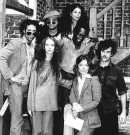 After recently reading the oral biography of Chris Farley, I turned to Live From New York, a bulky oral history of the show that made Farley famous. It reads about as quickly as a 600-page book can, full as it is of gossipy anecdotes.
After recently reading the oral biography of Chris Farley, I turned to Live From New York, a bulky oral history of the show that made Farley famous. It reads about as quickly as a 600-page book can, full as it is of gossipy anecdotes.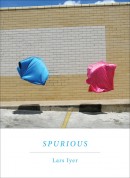 John Self
John Self 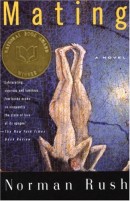 From
From 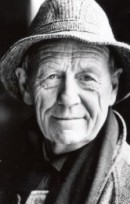 The literary journal One Story was recently asked to name its 10 top short stories.
The literary journal One Story was recently asked to name its 10 top short stories. 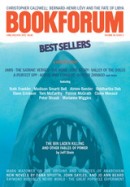 As Hollywood prepares its full-on assault of summer stupidity (I’m looking at you, Green Lantern), Bookforum cleverly devotes its summer issue to best sellers.
As Hollywood prepares its full-on assault of summer stupidity (I’m looking at you, Green Lantern), Bookforum cleverly devotes its summer issue to best sellers.  Later today, I’m going to post a belated review of Jessica Francis Kane’s The Report, a novel that’s both quiet and forceful. Kane has
Later today, I’m going to post a belated review of Jessica Francis Kane’s The Report, a novel that’s both quiet and forceful. Kane has 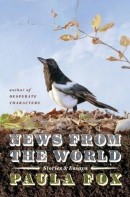 Ruth Franklin praises Paula Fox,
Ruth Franklin praises Paula Fox,  Malcolm Jones at Book Beast
Malcolm Jones at Book Beast 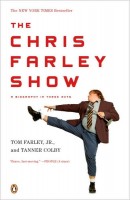 I don’t stick to a strict reading schedule. I’m always buying books, so I always have a lot of books I haven’t read. I imagine this condition will last forever. The unread books are in a constant state of flux, some of them occasionally floating toward the top of the pile, which pile is more mental than physical. Sometimes I will learn about a book or become suddenly interested in one that skips to the front of the line, but few of those books have been as unlikely to do so as The Chris Farley Show, an oral biography of the comedian.
I don’t stick to a strict reading schedule. I’m always buying books, so I always have a lot of books I haven’t read. I imagine this condition will last forever. The unread books are in a constant state of flux, some of them occasionally floating toward the top of the pile, which pile is more mental than physical. Sometimes I will learn about a book or become suddenly interested in one that skips to the front of the line, but few of those books have been as unlikely to do so as The Chris Farley Show, an oral biography of the comedian.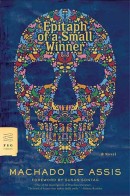 The Browser recently scored
The Browser recently scored 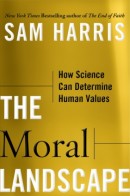 H. Allen Orr writes
H. Allen Orr writes 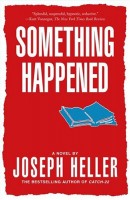 From
From 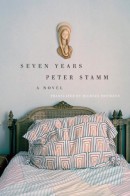 Peter Stamm’s Seven Years, translated from the German, tells a familiar story in a startling way. The story is that a husband is vaguely dissatisfied with his marriage, and ends up cheating on his wife. But Alex, an architect, chooses (or doesn’t choose, but is inexplicably compelled toward) an exceedingly odd object of affection. His wife, Sonia, a fellow architect, is brilliant and beautiful. His occasional lover, Ivona, is . . . not those things.
Peter Stamm’s Seven Years, translated from the German, tells a familiar story in a startling way. The story is that a husband is vaguely dissatisfied with his marriage, and ends up cheating on his wife. But Alex, an architect, chooses (or doesn’t choose, but is inexplicably compelled toward) an exceedingly odd object of affection. His wife, Sonia, a fellow architect, is brilliant and beautiful. His occasional lover, Ivona, is . . . not those things.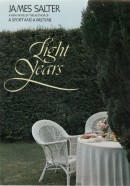 Geoff Dyer called the book’s central couple, Nedra and Viri, “possibly the most irritatingly named characters in literature.” It’s not just the names. The central characters are pretentious and easily dissatisfied, and say things out loud like, “The only thing I’m afraid of are the words ‘ordinary life.’” Despite a lack of fellow feeling with the characters, I liked Light Years quite a bit, because Salter can flat-out write. Here he describes the feeling of a relationship just after it has been sundered: “A fatal space had opened, like that between a liner and the dock which is suddenly too wide to leap; everything is still present, visible, but it cannot be regained.”
Geoff Dyer called the book’s central couple, Nedra and Viri, “possibly the most irritatingly named characters in literature.” It’s not just the names. The central characters are pretentious and easily dissatisfied, and say things out loud like, “The only thing I’m afraid of are the words ‘ordinary life.’” Despite a lack of fellow feeling with the characters, I liked Light Years quite a bit, because Salter can flat-out write. Here he describes the feeling of a relationship just after it has been sundered: “A fatal space had opened, like that between a liner and the dock which is suddenly too wide to leap; everything is still present, visible, but it cannot be regained.”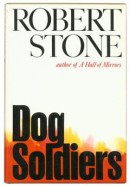 From
From  Christopher Hitchens writes both movingly and caustically about Philip Larkin’s
Christopher Hitchens writes both movingly and caustically about Philip Larkin’s 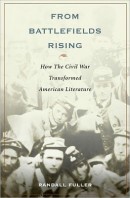 Craig Fehrman
Craig Fehrman  Morrissey, former lead singer of The Smiths and now longtime solo act, is
Morrissey, former lead singer of The Smiths and now longtime solo act, is  The
The  In what is my best decision of 2011 so far, I’m on a Geoff Dyer kick. Having meant to read him for a pretty long time, I recently finished
In what is my best decision of 2011 so far, I’m on a Geoff Dyer kick. Having meant to read him for a pretty long time, I recently finished 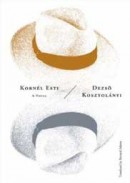 Jessa Crispin writes
Jessa Crispin writes 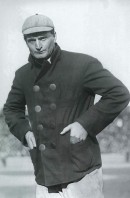 I was hoping to have a baseball-related Backlist piece up today, but it will have to wait for Monday. In the meantime, I came across David L. Ulin’s list of his nine best baseball books. It’s a good list, and one that Ulin admits couldn’t possibly be comprehensive. It includes The Natural, Roger Angell, Jimmy Breslin, and Ring Lardner, among others. It also includes a book I hadn’t heard of,
I was hoping to have a baseball-related Backlist piece up today, but it will have to wait for Monday. In the meantime, I came across David L. Ulin’s list of his nine best baseball books. It’s a good list, and one that Ulin admits couldn’t possibly be comprehensive. It includes The Natural, Roger Angell, Jimmy Breslin, and Ring Lardner, among others. It also includes a book I hadn’t heard of,  At The Paris Review, Thessaly La Force
At The Paris Review, Thessaly La Force 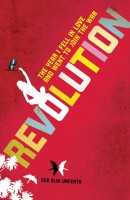 Madison Smartt Bell
Madison Smartt Bell  I’m thrilled to be a judge in this year’s Tournament of Books, an annual treat for readers. The quarterfinal round I judged pitted James Hynes’ Next, a novel I had been meaning to read, against Anne Carson’s Nox, a highly stylized, fragmentary account of her relationship with her brother, who died suddenly in 2000. Here’s a piece of
I’m thrilled to be a judge in this year’s Tournament of Books, an annual treat for readers. The quarterfinal round I judged pitted James Hynes’ Next, a novel I had been meaning to read, against Anne Carson’s Nox, a highly stylized, fragmentary account of her relationship with her brother, who died suddenly in 2000. Here’s a piece of  Sammy Hagar’s got a memoir out and, um, like many chronicles of rock n’ roll, it seems to come with an inherent warning about
Sammy Hagar’s got a memoir out and, um, like many chronicles of rock n’ roll, it seems to come with an inherent warning about 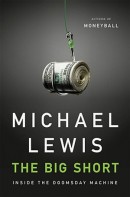 I feel like the blog is finally getting its 2011 legs. Or I hope so. This is supposed to be the biggest year in the site’s two-year history. (That’s what I read in Bloomberg Businessweek, anyway.) Time to pick up the pace.
I feel like the blog is finally getting its 2011 legs. Or I hope so. This is supposed to be the biggest year in the site’s two-year history. (That’s what I read in Bloomberg Businessweek, anyway.) Time to pick up the pace.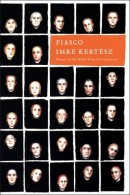 I recently received a copy of Imre Kertesz’s novel
I recently received a copy of Imre Kertesz’s novel 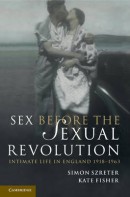 Simon Callow
Simon Callow  Let’s get your background down first. How long were you the book reviews editor at Harper’s? And during that time, what was the general nature of the job (without addressing the gender balance in these questions yet) – how many people did you solicit vs. how many people pitched you? How much of what you assigned for review was nonfiction vs. fiction?
Let’s get your background down first. How long were you the book reviews editor at Harper’s? And during that time, what was the general nature of the job (without addressing the gender balance in these questions yet) – how many people did you solicit vs. how many people pitched you? How much of what you assigned for review was nonfiction vs. fiction?